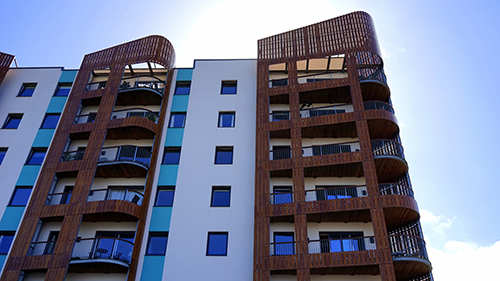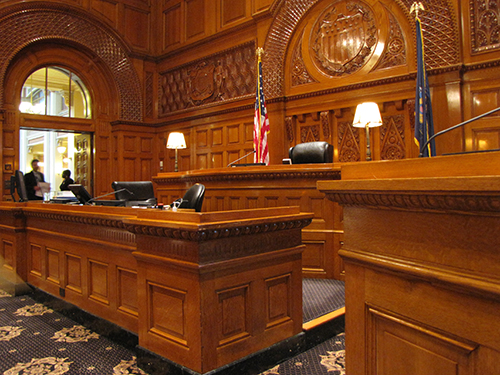(Posted 2022 September)
 Several changes to Foster Care and Resource Family laws became effective July 1, 2022. A brief summary of each bill and links to the legislation that passed during the 2022 Session of the Virginia General Assembly appear below. Please access the links provided to review the entire content of the legislation.
Several changes to Foster Care and Resource Family laws became effective July 1, 2022. A brief summary of each bill and links to the legislation that passed during the 2022 Session of the Virginia General Assembly appear below. Please access the links provided to review the entire content of the legislation.
These measures are designed to encourage more kinship placements for youth in foster care, and to provide more housing support to youth aging out of foster care.
Foster care placements; court review. SB 396 amends and reenacts §§ 16.1-278.2, 16.1-278.4, and 16.1-278.8 of the Code of Virginia. It provides that the Juvenile and Domestic Relations District Court has the authority to review a child's status in foster care or review a foster care plan. The bill requires a foster care plan to describe in writing an assessment of the stability of proposed placements, the services provided or plans for services to be provided to address placement instability, and a description of other placements that were considered for the child, and why those placements were not provided.
The bill also (i) requests that the Committee on District Courts study child dependency hearings in the Juvenile and Domestic Relations District Court system and make recommendations to the General Assembly as to whether a separate docket or court would result in better service to children and families involved in child dependency hearings and other family law matters and (ii) directs the Office of the Children's Ombudsman to convene a work group to consider issues relating to the Commonwealth's model of court-appointed legal counsel in child dependency cases.
Takeaway: The Juvenile and Domestic Relations District Court has the authority to review a child's status in foster care or review a foster care plan to determine the stability of placements.
 Foster care; housing support for persons between ages 18 and 21. HB 349 amends the Code of Virginia by adding § 63.2-905.1:1, that requires local departments of social services (LDSS) to provide housing support for a period of six months to any youth between the ages of 18 and 21 who declined to participate in Fostering Futures and was in foster care on or after July 1, 2022 when they turned 18 or was in foster care prior to being committed to the custody of the Department of Juvenile Justice (DJJ) and are now leaving that commitment. HB 349 directs that the housing support payments be comparable to the room and board portion of a foster care maintenance payment the youth would have received in Fostering Futures. The payments can be sent directly to the housing provider or to the person receiving housing support. At the time of the youth’s exit from foster care, the LDSS must provide written notice to the youth of their right to request restoration of housing support and must document this in the youth’s transition plan.
Foster care; housing support for persons between ages 18 and 21. HB 349 amends the Code of Virginia by adding § 63.2-905.1:1, that requires local departments of social services (LDSS) to provide housing support for a period of six months to any youth between the ages of 18 and 21 who declined to participate in Fostering Futures and was in foster care on or after July 1, 2022 when they turned 18 or was in foster care prior to being committed to the custody of the Department of Juvenile Justice (DJJ) and are now leaving that commitment. HB 349 directs that the housing support payments be comparable to the room and board portion of a foster care maintenance payment the youth would have received in Fostering Futures. The payments can be sent directly to the housing provider or to the person receiving housing support. At the time of the youth’s exit from foster care, the LDSS must provide written notice to the youth of their right to request restoration of housing support and must document this in the youth’s transition plan.
Takeaway: Certain youth ages 18-21 who declined participation in Fostering Futures are now eligible to receive housing support payments comparable to the room and board portion of a foster care maintenance payment the youth would have received in Fostering Futures.
 Kinship foster care; notice and appeal. SB 307 and HB 716 requires that the local board of social services provide relatives of children in foster care with the process to become a kinship foster parent within no more than 15 days of such request. If the relative is denied as a kinship foster parent, the local board of social services shall provide to the relative (i) a clear and specific explanation of the reasons for such denial, (ii) a statement that such denial is appealable pursuant to § 63.2-915, and (iii) an explanation of the procedure for filing such appeal. The bills give any individual whose application to become a kinship foster parent is denied a right to file an appeal with the Commissioner. Upon receiving a request for an appeal regarding a kinship foster parent denial, a hearing must be conducted as soon as practical and a decision rendered within no more than 90 days prior to the child's next court hearing.
Kinship foster care; notice and appeal. SB 307 and HB 716 requires that the local board of social services provide relatives of children in foster care with the process to become a kinship foster parent within no more than 15 days of such request. If the relative is denied as a kinship foster parent, the local board of social services shall provide to the relative (i) a clear and specific explanation of the reasons for such denial, (ii) a statement that such denial is appealable pursuant to § 63.2-915, and (iii) an explanation of the procedure for filing such appeal. The bills give any individual whose application to become a kinship foster parent is denied a right to file an appeal with the Commissioner. Upon receiving a request for an appeal regarding a kinship foster parent denial, a hearing must be conducted as soon as practical and a decision rendered within no more than 90 days prior to the child's next court hearing.
Takeaway: The local board of social services must provide relatives of children in foster care with the process to become a kinship foster parent within no more than 15 days of such request. If the relative is denied as a kinship foster parent, they must be provided information about how to appeal the decision.
Foster care; local boards of social services; collaborative placement program. HB 653 instructs local boards of social services to place children with a foster family within the locality of the local board or a nearby locality through the collaborative local board placement program. HB 653 also instructs the Department to establish and implement a collaborative local board placement program to increase kinship placements and the number of locally approved foster homes. Such a program shall require local boards to enter into partnership agreements with other local boards to work collaboratively to (i) facilitate approval of kinship foster parents through engagement, assessment, and training; (ii) increase the capacity of local boards to recruit, train, and develop foster parents; and (iii) expand the pool of available foster homes within and across the localities of such local boards.
Takeaway: Local boards of social services should partner with other local boards to facilitate approval of kinship foster parents, increase recruitment and training of foster parents, in order to expand the pool of available foster homes.
Excerpted from the VDSS Fusion Broadcast on Family Services Legislation
This article posting is part of the Foster Family News monthly newsletter designed to keep foster parents informed about all the new and notable happenings in Fairfax County.
Learn about what the Foster Care and Adoption program has planned for foster families - stay on top of trends, participate in trainings and learn about policy changes.


